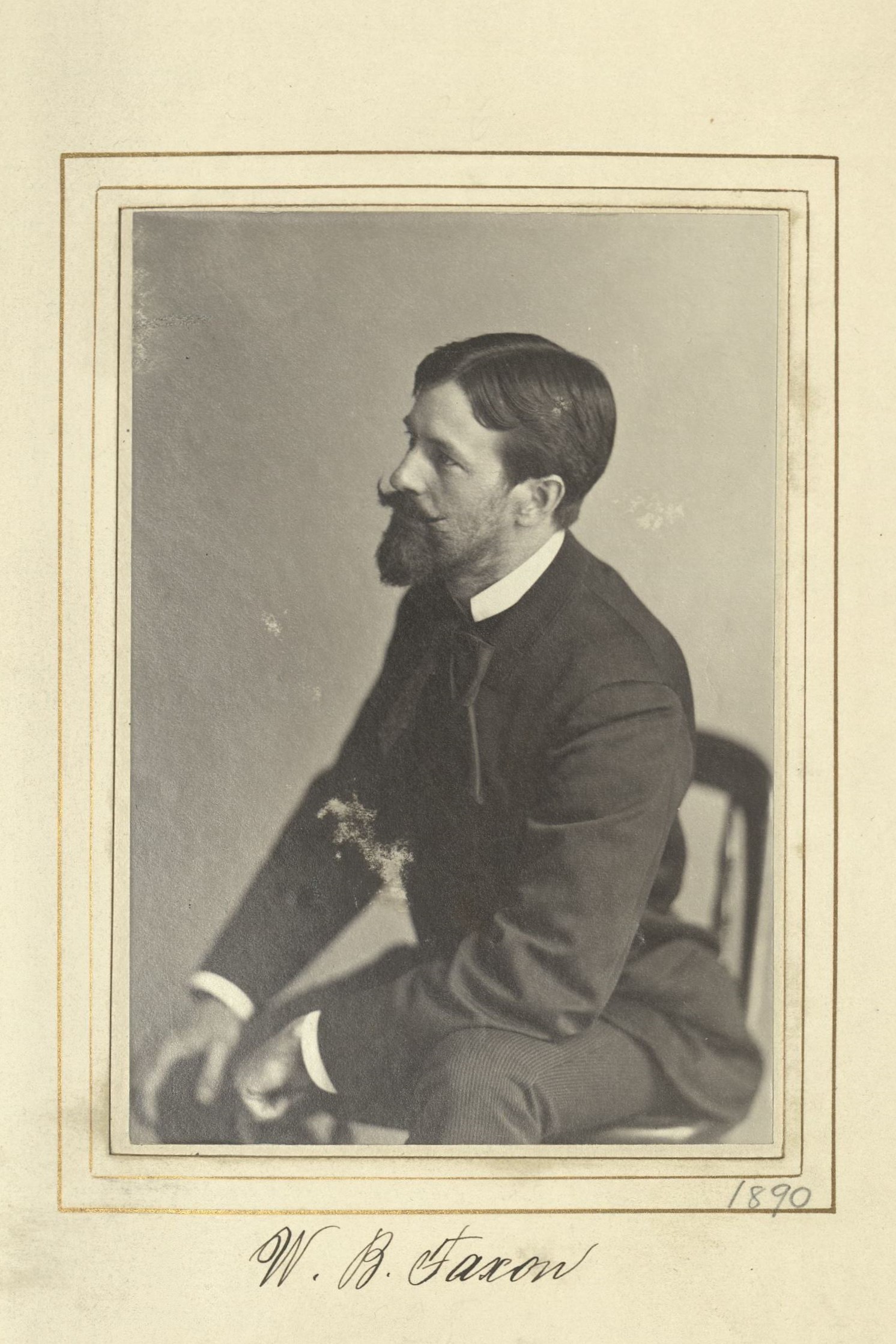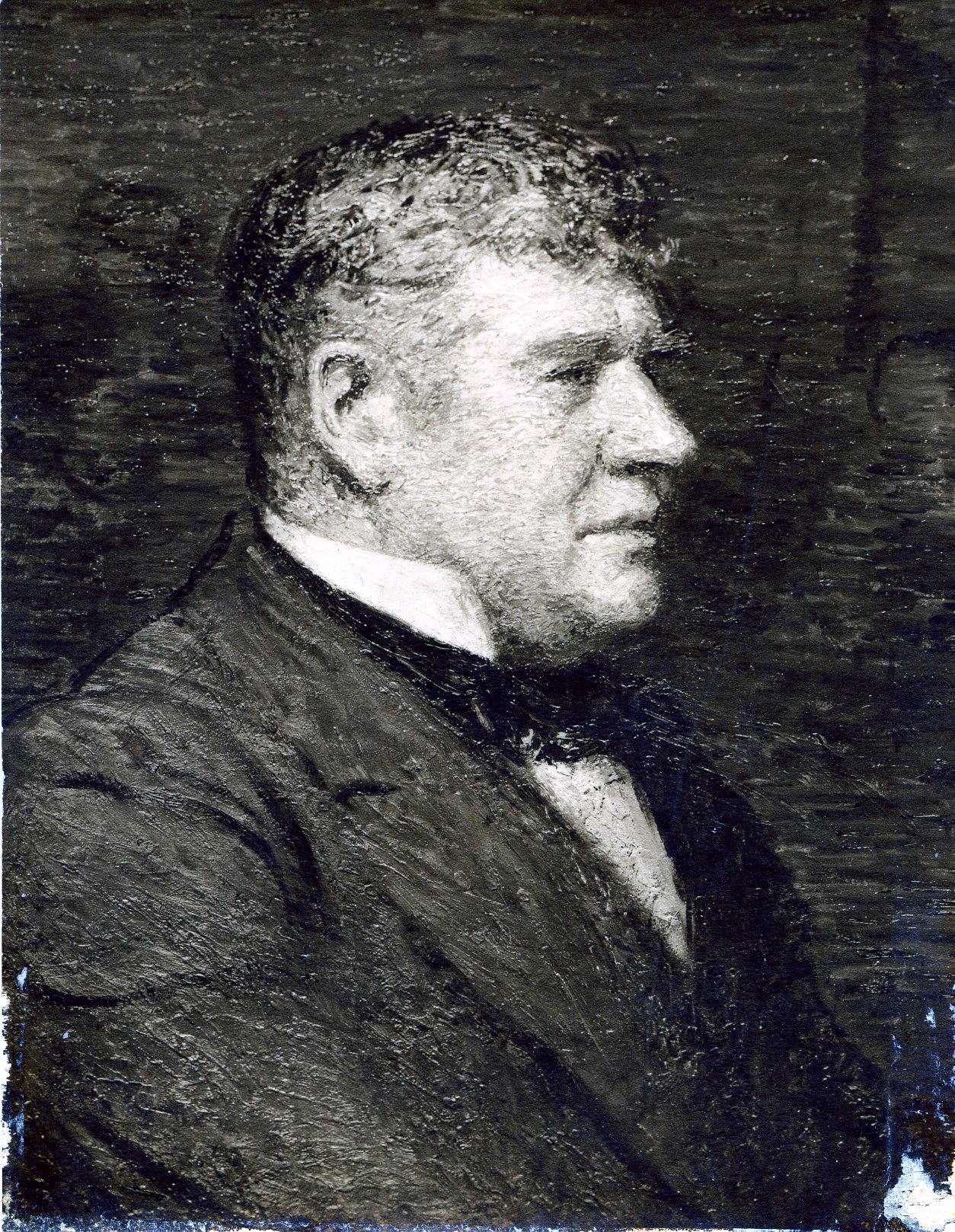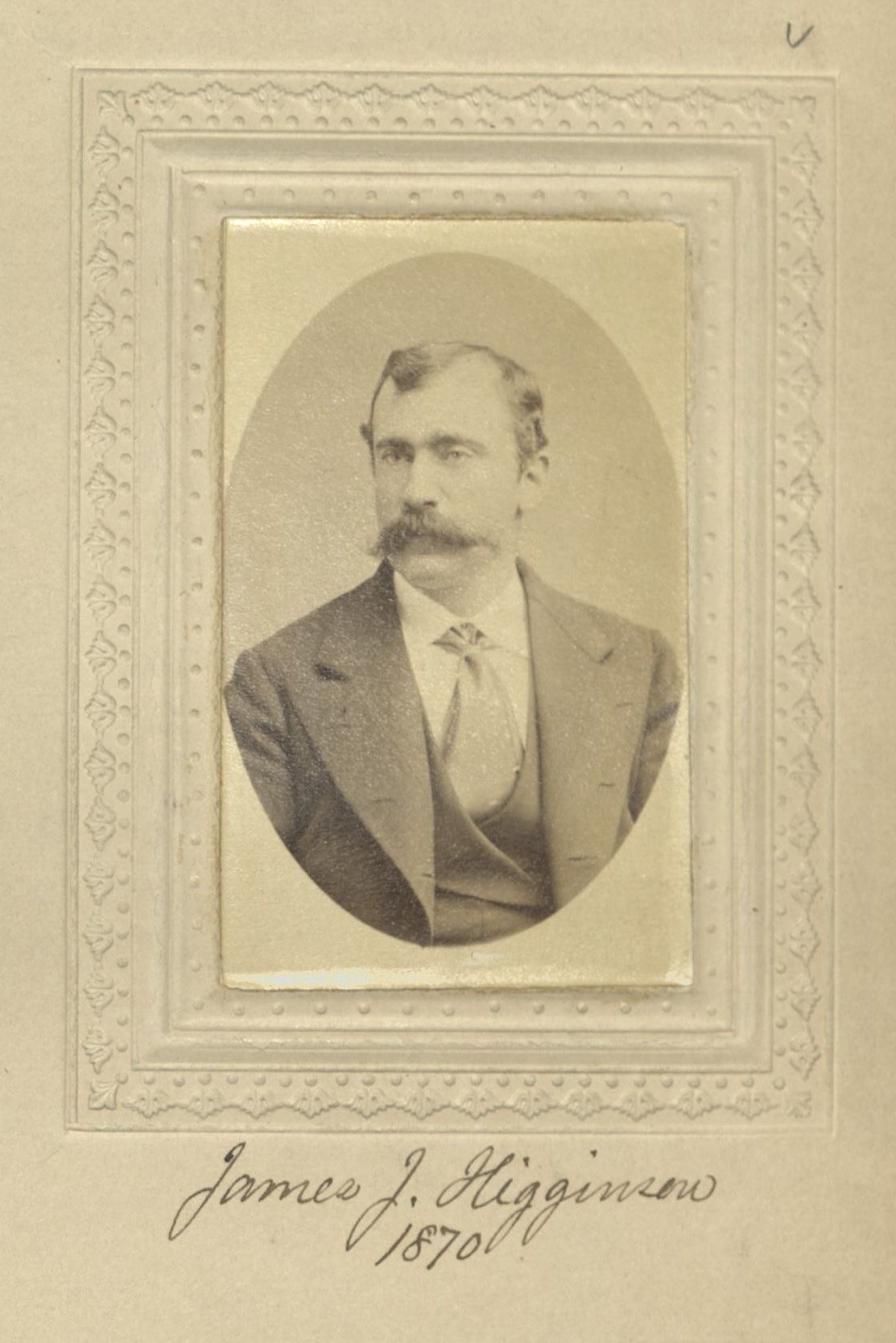Member Directory,
1847 - 1922
Henry K. Pomroy
Banker
Centurion, 1895–1925
James J. Higginson and William Bailey Faxon
New York (Manhattan), New York
New York (Manhattan), New York
Age forty-one
Simsbury, Connecticut

Century Memorial
No year passes without the Century recognizing afresh how much it had valued Club affiliation with some member who had qualified only through the occasional and very wise stretching of that elastic test, “artists and amateurs.” Many associations, some of them concerning performance of official duties at moments of grave and critical responsibility, cluster about the memory of Henry Ke[e]ney Pomroy, but to the Century the picture will always be of the cheerful personality which invariably made one of the circle in the west reading room, after a monthly meeting had adjourned. Pomroy might find it inconvenient to attend a conference of the Wabash Railway directors or the Stock Exchange board of governors, but he never missed a Century monthly night. The group, indeed, was never quite complete until that slightly stoop-shouldered figure with the thoughtful face, the ready smile, the iron-gray hair and the kindly eyes had settled down into one of the chairs and the cup of cheer, approved by Holy Writ and proscribed by the Volstead Act, went round. If there is such a thing as winning personal affection by the manner of joining in social intercourse, the quality surely belonged to Pomroy.
Pomroy was a notable figure on the Stock Exchange, of which he had been a member for no less than 47 years and an officer for 36. His knowledge of the investment market, his clear insight into the problems surrounding it, made him an exceptionally wise adviser to serious investors. The other kind of clients—Wall Street speculators who think they have grasped what they call “the situation” because they can snatch a profit on a brief and sudden rise, “outsiders” who try to follow the “professional” and are apt to leave their money with him—did not interest Pomroy in the least, except as froth on the financial wave. His was the kind of foresight which, in appraisal of intrinsic values, looked months or years ahead; which was patient when stock market values moved obstinately in the opposite direction from his hopeful forecast, unwavering when a wild advance in prices seemed to make his warning advice ridiculous.
The managers of the Stock Exchange leaned heavily on Pomroy’s judgment during that period of suspended life in the whole world’s financial organism, the five months after July, 1914. Reluctant as he was to assent to the closing of the institution’s doors for that unprecedently long period, convinced of the necessity of doing so only by tangible evidence that Europe, in the wildest kind of panic, was awaiting the next day’s resumption of business to throw on New York, at any price obtainable, all American securities available out of Europe’s $2,000,000,000 holdings of them, he was even more insistent, when panic had spent its force and American finance had squared its shoulders to the war-time economic strain, on the prompt reopening of the New York Stock Exchange. With those timid financiers who saw impending ruin even in the limited street trading of the “outlaw market,” he had no sympathy whatever. The bankers who prophesied that London, now that its own financial crisis had been met and overcome, would submerge our market in a single day with all of our foreign-held stocks and bonds, seemed to Pomroy to be talking nonsense. Not without experimental steps and due precaution, but with perfectly clear purpose, the Stock Exchange reopened, and we know what followed.
No reminiscence of Pomroy’s career would be complete which did not recall his service in converting the Stock Exchange from a machine which promoters constantly utilized for unscrupulous purposes into an institution which recognized its responsibility first of all to the uninformed investor and the general public. The change in rules and purposes was not achieved without a struggle; there was angry talk about young and inexperienced men who were tossing to the winds the accumulated wisdom of their elders. Pomroy was even then one of the elders. He had been President of the institution; every member of it recognized his sagacity and conservatism. It was largely because the great weight of his personal influence was thrown into the scale that early inauguration of the wholesome reforms became possible.
Alexander Dana Noyes
1926 Century Association Yearbook



